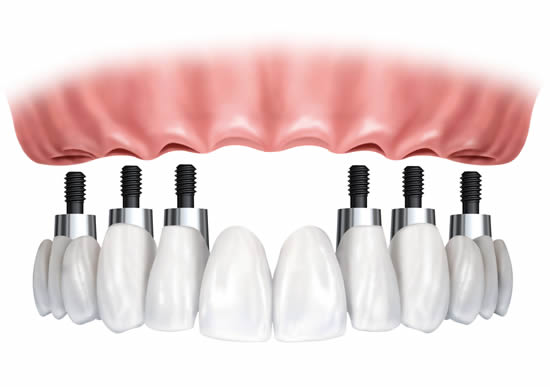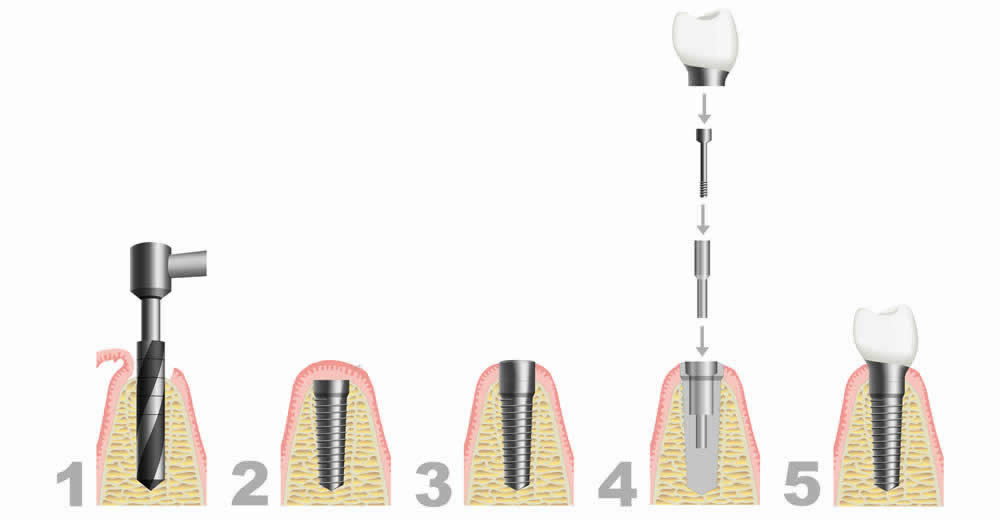Dental implants in St Helens
What are implants?
Dental implants are precision engineered titanium rods which are placed into the jawbone to mimic the root of a natural tooth. Titanium bonds extremely well with the natural bone structure in a process known as "osseo-integration" and when complete, forms a very firm base for bridges, crowns or to anchor loose dentures.
Implants are regarded by many to be the "gold standard" for modern tooth replacement.




How can they be used?
Dental implants provide a flexible solution for replacing single or multiple teeth. In fact, four or more implants can be used to anchor a full bridge of replacement teeth as an alternative to dentures. Where a patient prefers dentures, additional confidence can be gained by using implants to stabilise them but still allowing the dentures to be removed for cleaning.
There are numerous benefits to using dental implants for replacing missing teeth as follows:
- can be used to replace single or multiple teeth
- provide a strong, stable and natural looking replacement tooth
- easy to keep clean - just floss and brush as you would your natural teeth
- long-lasting - 15 years is typical and often 20 or more
- eat what you want - a correctly placed implant functions just the same as your natural teeth
Am I suitable for implants?
Most people are suitable for implants but not everyone. Sometimes additional procedures are required in advance of implant placement, for example a bone graft where the jaw bone has degraded due to teeth being missing for a number of years. In rare cases, implants may not bond with a person's jawbone despite best efforts and it is difficult to predict this in advance. However for most people, even where an prior bone graft is required, implants are usually an excellent solution to replace their missing teeth.
Implant procedure
Before implant treatment begins, we will ask you to attend a thorough consultation where we will assess your suitability for implants. This included taking x-rays and scans to determine the condition of the bone in your jaw and to establish if a bone graft procedure is needed beforehand. The scans are also important to help our dentists place the implants precisely, in just the right place to support the crown or bridge above it and also avoiding any nerves in the adjacent parts of the jaw.
To place the implant, a small hole is made in the gum and jawbone following which the titanium rod is screwed gently in to place. The implant is then allowed to fuse very firmly with the jawbone; a process known as osseointegration, which typically takes 3 or 4 months. When we are sure that the implant is firm, it will be used to support a new dental crown, a bridge or to form a solid foundation for stabilising dentures.

Aftercare
Implants can be treated just as you would your natural teeth and can be expected to last for many years as long as you look after them well with appropriate brushing and flossing.
We will also ask you back for periodic checks so we can ensure that your implant is being looked after correctly and, in the unlikely event of any problems, take appropriate action.
Are you interested in dental implants? Please get in touch
If you are interested in dental implants to replace missing teeth or perhaps to replace or stabilise loose, uncomfortable dentures, please get in touch on 01744 23677 or click here to use our contact form. Our team will be pleased to assist you.
